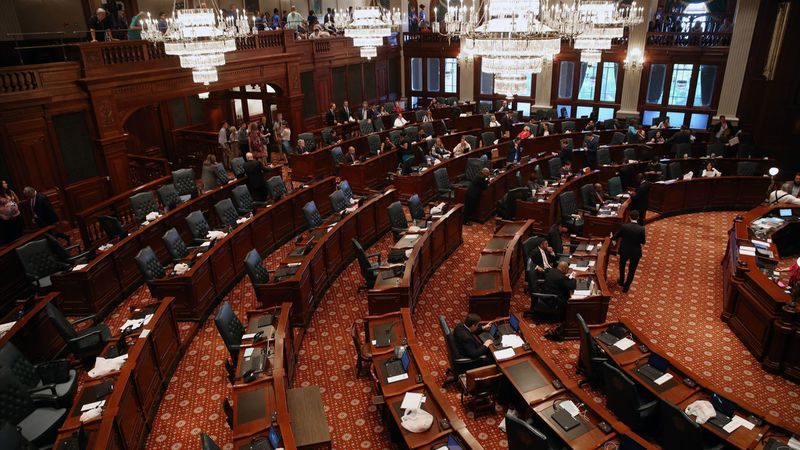
Progressive income tax proposal would sink Illinois
By David McSweeney
The Land of Lincoln is on the precipice of a financial disaster, and the window to repair our damaged state is shrinking every single day. Instead of reforming public employee pensions and Medicaid, some people are promoting a progressive income tax constitutional amendment — a code phrase for another massive tax increase. The adoption of a progressive income tax would be the final nail in the coffin of our great state. We need to cut spending, not raise taxes.
Illinois is a great state with attractive natural resources, solid infrastructure and outstanding people. However, our finances are a mess. Despite a massive 32 percent income tax increase approved last year, our state has the worst credit rating of all 50 states and, according to Moody’s rating agency, an unfunded pension liability of about $250 billion, a sum far greater than the $133 billion calculated by the state. It is little wonder that Illinois lost 33,000 people net last year and that we recently fell behind Pennsylvania in population.
According to a recent report from WalletHub examining the combined property taxes, income taxes and sales taxes in each state, Illinois residents pay the highest overall tax burden of all 50 states.
In order to adopt a progressive income tax constitutional amendment, three-fifths of the members of the Illinois House and Senate would need to vote yes and 60 percent of Illinois voters would need to approve it. The proponents refuse to put their rate structure in the constitutional amendment, so they’re effectively saying that we’ll need to approve it and then find out what the rates would be. It’s important to note that Illinois politicians would then be free to continually increase rates like California, New York and New Jersey. Do you really trust Illinois politicians to set progressive tax rates?
These 25 American universities are asking for top dollar in college tuition, but the diplomas are not always paying off in the end.
The creation of a graduated income tax in Illinois would be a disaster for state residents. It would simply drive more people out of the state and likely end up as a massive tax increase for everyone — not just high-income earners.
All we have to do is look at the record of the progressive income tax in surrounding states. For instance, the highest tax rate of 6 percent in Missouri kicks in after $9,072 of taxable income. Couples making $9,000 per year are definitely not rich.
Proponents of a graduated income tax often cite Minnesota’s recent economic policies as the model to use in Illinois. However, using 2017 Minnesota tax brackets, every Illinois income earner would see a tax increase since the lowest bracket starts at 5.35 percent compared to the already too high Illinois income tax rate of 4.95 percent. The highest Minnesota tax rate of 9.85 percent applies to all taxable income above $261,150. Under a Minnesota-like progressive income tax structure, an Illinois married couple with $100,000 of taxable income would pay 29.7 percent more in taxes than under the current Illinois flat rate structure.
The progressive income tax would result in a massive tax increase and that is the last thing Illinois needs right now. The nonpartisan Tax Foundation routinely ranks Illinois as having among the highest total state and local tax burdens in the nation. When you combine a graduated income tax with all the other taxes Illinois residents pay, such as the second highest property taxes in the nation, a graduated income tax would do irreparable harm to our state.
As the late Rep. Jack Kemp once observed, the positive impact of lower tax rates on economic activity is not a matter of opinion — it is a matter of fact. Thanks to tax cuts and deregulation at the national level, the economy is booming with 3.8 percent unemployment. We need a similar resurgence in Illinois, but this will never happen if we enact bad policies such as the graduated income tax.
Illinois cannot afford more tax increases.
